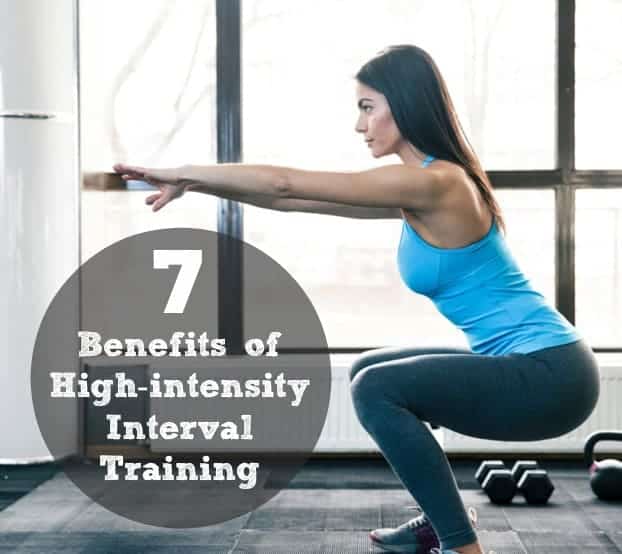High-Intensity Interval Training (HIIT) has gained immense popularity in recent years due to its efficiency and effectiveness in improving fitness levels and achieving various health goals. This comprehensive guide aims to explore the numerous benefits of HIIT, from its ability to torch calories and improve cardiovascular health to its time-saving nature and versatility in workouts. Whether you’re a seasoned athlete or a beginner looking to kickstart your fitness journey, HIIT offers something for everyone.
Efficient Calorie Burning
One of the primary benefits of HIIT is its ability to burn a significant number of calories in a relatively short amount of time. HIIT workouts typically alternate between periods of high-intensity exercise and brief rest or recovery periods. This high-intensity effort, combined with the elevated heart rate and metabolic rate during and after the workout, leads to greater calorie expenditure compared to steady-state cardio exercises. Research has shown that HIIT can help burn more calories per minute than traditional aerobic exercises, making it an efficient option for those with limited time for workouts.
Improved Cardiovascular Health
HIIT has been shown to improve cardiovascular health by enhancing heart function, increasing stroke volume (the amount of blood pumped with each heartbeat), and improving overall cardiovascular endurance. The intense bursts of activity followed by short recovery periods challenge the cardiovascular system, leading to adaptations that improve aerobic capacity and cardiovascular efficiency over time. Regular HIIT workouts can help lower blood pressure, reduce LDL (bad) cholesterol levels, and improve blood vessel function, reducing the risk of heart disease and stroke.
Increased Metabolic Rate
HIIT can boost your metabolism and increase fat burning not only during the workout but also in the hours following exercise. This phenomenon, known as excess post-exercise oxygen consumption (EPOC) or the “afterburn” effect, occurs as the body works to restore oxygen levels, repair muscle tissue, and replenish energy stores depleted during the workout. Research suggests that HIIT can elevate metabolism for up to 24 hours post-exercise, leading to greater calorie expenditure and fat loss compared to steady-state cardio exercises.
Time Efficiency
One of the most appealing aspects of HIIT is its time efficiency. HIIT workouts typically range from 10 to 30 minutes in duration, making them ideal for individuals with busy schedules or limited time for exercise. Despite their shorter duration, HIIT workouts can deliver significant fitness gains and health benefits comparable to longer, moderate-intensity workouts. The ability to achieve maximum results in minimal time makes HIIT a practical and convenient option for those seeking effective workouts that fit into their hectic lifestyles.
Versatility and Variety
HIIT is highly versatile and adaptable to different fitness levels, preferences, and goals. It can be performed using various exercises, including bodyweight exercises, cardio activities (such as running, cycling, or jumping rope), strength training exercises (such as squats, lunges, or push-ups), or a combination of modalities. Additionally, HIIT workouts can be customized to target specific muscle groups, improve athletic performance, or address individual fitness objectives, providing endless possibilities for variation and progression.
Enhanced Fat Loss and Muscle Preservation
HIIT has been shown to be highly effective for fat loss while simultaneously preserving lean muscle mass. Unlike steady-state cardio exercises, which may lead to muscle loss over time, HIIT helps maintain muscle mass by stimulating muscle protein synthesis and promoting fat oxidation. The combination of high-intensity exercise and resistance training elements in HIIT workouts can help sculpt lean muscle tissue, improve muscle definition, and increase metabolic rate, contributing to a leaner, more toned physique.
Mental and Emotional Benefits
In addition to its physical benefits, HIIT can have significant mental and emotional benefits. The intense bursts of activity followed by short recovery periods can boost mood, reduce stress levels, and increase feelings of well-being and vitality. HIIT workouts often involve a mix of challenging exercises, goal-setting, and achievement, leading to a sense of accomplishment and empowerment. The endorphin release during and after HIIT sessions can also provide a natural mood lift and help alleviate symptoms of anxiety and depression.
Conclusion
In conclusion, High-Intensity Interval Training (HIIT) offers a multitude of benefits for individuals looking to improve their fitness levels, burn calories, and achieve various health goals. From its efficiency in calorie burning and cardiovascular improvements to its time-saving nature, versatility in workouts, and mental and emotional benefits, HIIT provides a comprehensive approach to fitness that can accommodate individuals of all fitness levels and lifestyles. Whether you’re looking to lose weight, improve cardiovascular health, increase metabolism, or simply add variety to your workouts, HIIT offers a practical and effective solution. By incorporating HIIT workouts into your fitness routine and staying consistent with your efforts, you can experience the numerous benefits that HIIT has to offer and take your fitness journey to the next level.
ChatGPT can make m
- Exploring Kratom Capsules: My Fun Review of Just Kratom’s Top Picks - August 1, 2024
- Benefits of Gymmema Supplements - April 3, 2024
- Benefits of Glucosamine Supplements - April 3, 2024

